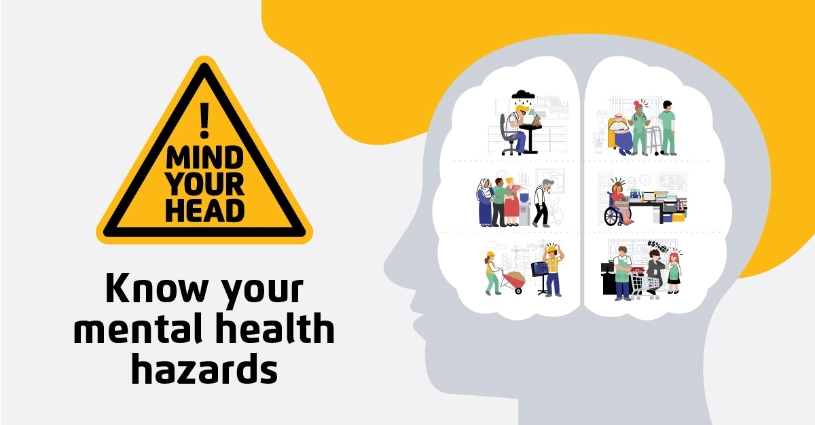In a detailed exposé aimed at bolstering mental health awareness, we present a compendium of 100 potential threats to emotional well-being. By recognizing and understanding these factors, individuals can take proactive steps to shield their mental tranquility. Here’s a concise breakdown:
100 mental health hazards:
1. Excessive Screen Time
2. Social Isolation
3. Lack of Physical Activity
4. Sleep Deprivation
5. Unhealthy Diet
6. Substance Abuse
7. Chronic Stress
8. Negative Self-talk
9. Perfectionism
10. Financial Instability
11. Toxic Relationships
12. Bullying
13. Cyberbullying
14. Unrealistic Expectations
15. Overworking
16. Lack of Boundaries
17. Unresolved Trauma
18. Loneliness
19. Fear of Missing Out (FOMO)
20. Discrimination
21. Lack of Emotional Expression
22. Procrastination
23. Information Overload
24. Mindless Consumption
25. Self-neglect
26. Poor Time Management
27. Disconnection from Nature
28. Excessive Noise Pollution
29. Lack of Mindfulness
30. Over-Competition
31. Perpetual Comparison
32. Unprocessed Grief
33. Unhealthy Coping Mechanisms
34. Overconsumption of News
35. Sensationalism
36. Unrealistic Beauty Standards
37. Pessimism
38. Lack of Social Support
39. Suppressing Emotions
40. Fear of Change
41. Overburdening Responsibilities
42. Unbalanced Work-Life Ratio
43. Over-reliance on Social Media Validation
44. Lack of Purpose
45. Repetitive Negative Thinking
46. Unresolved Conflict
47. Unmanaged Expectations
48. Lack of Creativity
49. Inadequate Self-care
50. Cultural Stigma Regarding Mental Health
51. Overemphasis on Materialism
52. Unhealthy Parental Relationships
53. Denial of Mental Health Issues
54. Inability to Say ‘No’
55. Overplanning and Worrying About the Future
56. Overdependence on Others for Happiness
57. Imposter Syndrome
58. Emotional Perfectionism
59. Lack of Gratitude Practice
60. Disconnection from Spiritual Values
61. Non-assertiveness
62. Suppressed Anger
63. Overburdening Personal Responsibilities
64. Unresolved Guilt
65. Overwhelm from Multitasking
66. Fear of Failure
67. Lack of Meaningful Connections
68. Unaddressed Childhood Trauma
69. Reluctance to Seek Help
70. Emotional Repression
71. Resisting Change
72. Disconnection from Cultural Roots
73. Fear of Vulnerability
74. Internalized Shame
75. Overindulgence in Technology
76. Disconnection from Personal Values
77. Reluctance to Set Boundaries
78. Inability to Accept Compliments
79. Over-identification with Work or Roles
80. Fear of Rejection
81. Suppression of Creativity
82. Lack of Assertiveness in Relationships
83. Fear of Abandonment
84. Habitual People-pleasing
85. Avoidance of Emotional Pain
86. Disconnection from Sensory Experiences
87. Unresolved Past Regrets
88. Over-responsibility for Others’ Emotions
89. Self-sabotaging Beliefs
90. Lack of Emotional Regulation Skills
91. Negative Body Image
92. Avoidance of Uncomfortable Conversations
93. Inability to Forgive Oneself
94. Fear of Intimacy
95. Perpetual Victim Mentality
96. Resistance to Personal Growth
97. Disconnection from Intuition
98. Disregard for Personal Values
99. Chronic Perfectionist Attitude
100. Disconnection from the Present Moment
This comprehensive guide aims to equip individuals with the knowledge to safeguard their mental well-being, encouraging a proactive approach to mental health.
